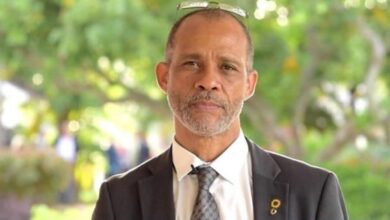Two men sentenced to death by hanging for armed robbery in Ekiti

Ado Ekiti, Nigeria – On Thursday, March 27, the Ekiti State High Court convicted Olusegun Folorunso, 53, and Ajayi Dele, 51, sentencing both to death by hanging for armed robbery.
Justice Olusegun Ogunyemi delivered the judgment in Ado Ekiti, emphasizing the gravity of their crimes.
Following a thorough trial, prosecutors proved the duo conspired and robbed victims along Erio Ekiti Road on August 24, 2022. Authorities confirmed they stole a Hyundai Sonata car, phones, and a laptop while brandishing guns and cutlasses, terrorizing Ajogbeje Ayodeji and Oluwasegun Oke during the attack.
Meanwhile, the prosecution team, led by Kunle Adeyemo, presented five witnesses and critical evidence, including defendant statements, firearms, and live cartridges. One victim recounted how assailants forced him and his brothers to lie face down before seizing their belongings.
Afterward, the victims reported the incident to Aramoko Police Station and the Rapid Response Squad, leading to the defendants’ eventual arrest in Ibadan. Investigators linked the suspects to the crime through recovered weapons and testimonies.
Despite defense representation by Adeyinka Opaleke and Ezekiel Agunbiade, neither defendant called witnesses to counter the prosecution’s case. Justice Ogunyemi concluded the evidence overwhelmingly demonstrated their shared intent to commit robbery.
Ultimately, the judge imposed a 10-year prison term for conspiracy and a death sentence for armed robbery. He affirmed, “Sufficient facts establish common intention, warranting conviction under the law,” during his ruling.
Notably, Nigeria’s Robbery and Firearms Act prescribes severe penalties for such offenses, reflecting broader societal intolerance for violent crime. Section 6(b) of the 2004 law specifically mandates death for armed robbery convictions.
During proceedings, victims detailed their trauma, describing how the robbers ambushed them at dawn with weapons. Their testimonies, paired with forensic evidence, cemented the court’s decision.
Furthermore, the defendants’ failure to present counterarguments weakened their position. Prosecutors highlighted their flight to Ibadan as proof of guilt, arguing it demonstrated consciousness of wrongdoing.
Justice Ogunyemi underscored the judiciary’s duty to uphold public safety, stating, “Courts must decisively address crimes that threaten societal peace.” His ruling aligns with Nigeria’s stringent stance on armed robbery.
Conclusively, the case reinforces the legal system’s role in deterring violent crime. By imposing capital punishment, the court signals zero tolerance for acts undermining citizen security.
Legal experts note such judgments aim to balance retribution with prevention, though debates persist over the death penalty’s efficacy. Nevertheless, the verdict aligns with current statutory frameworks.
Moreover, the trial’s transparency—marked by witness cross-examinations and documented evidence—strengthens public trust in judicial processes. Robust prosecutorial efforts ensured accountability for the perpetrators.
This outcome also highlights collaboration between police units, as Rapid Response Squad intervention proved pivotal in apprehending the suspects. Effective law enforcement coordination remains vital for combating organized crime.
Finally, the sentencing sparks discussions on rehabilitation versus punitive measures in Nigeria’s justice system. While some advocate reform, others argue harsh penalties are necessary to curb rampant armed robbery.
As Ekiti State enforces this judgment, it joins broader national efforts to confront criminality. The case serves as a stark reminder of the legal consequences awaiting those who violate Nigeria’s robbery laws.
Post Views: 30





